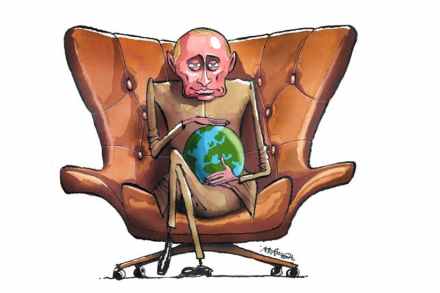PMQs: Boris Johnson faces pressure to be tougher on Russia
Boris Johnson came under sustained pressure at PMQs today to introduce tougher sanctions against Russia. Both Sir Keir Starmer and Ian Blackford pressed the Prime Minister on the matter, with the Labour leader opening his questions by arguing that given a sovereign country had been invaded, ‘if not now, when’ would the government unleash a full package of sanctions. Starmer repeatedly said the Labour party was supportive of what had been announced so far but that it wanted much more from the government. This included cracking down on the Russian state-backed broadcaster RT, which he said should be prevented from spreading Vladimir Putin’s propaganda around the world. Johnson argued that





















